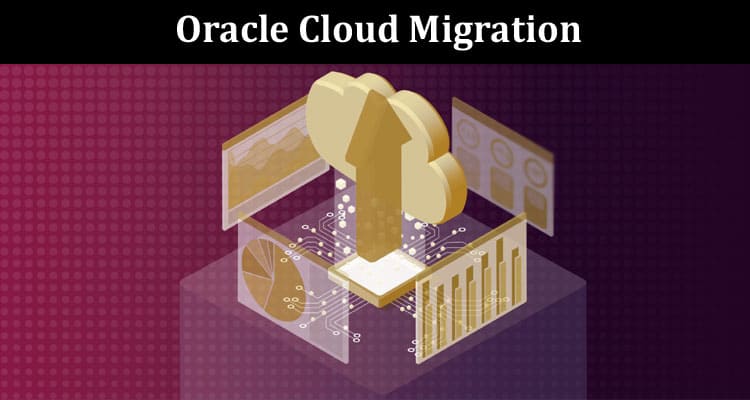In the fast-paced world of digital transformation, Oracle Cloud is used by almost every enterprise. It helps businesses put innovation, agility, and scalability at the forefront. However, a robust continuous testing strategy is indispensable to harness the power of Oracle Cloud. In this blog, we will explore the critical role of continuous testing in optimizing Oracle Cloud migration.
The Essence of Continuous Testing
Continuous Testing is a fundamental shift in testing methodologies, emphasizing the need for automated testing at every stage of the software delivery pipeline. Unlike traditional testing approaches that occur late in the development process, continuous testing integrates quality assurance into the development workflow. It includes various testing types such as unit testing, integration testing, functional testing, performance testing, and security testing.
Potential Benefits of Continuous Testing in Oracle Cloud Migration
Early Detection of Issues
Continuous Testing ensures that potential issues, whether related to compatibility, performance, or security, are identified early in the Oracle Cloud migration process. This early detection minimizes the impact on the overall project timeline and reduces the cost of fixing defects.
Improved Quality and Reliability
Automation in continuous testing leads to more thorough and consistent testing, resulting in higher software quality. Applications deployed on Oracle Cloud are expected to be reliable, and continuous testing contributes to achieving and maintaining these standards.
Agility and Speed to Market
Continuous testing accelerates the software delivery pipeline, allowing organizations to release new features and updates faster. For enterprises leveraging Oracle Cloud services, the agility gained through continuous testing is crucial to staying competitive in rapidly evolving markets.
Mitigation of Risks in Migration
Oracle Cloud migration involves inherent risks, such as data integrity issues, security vulnerabilities, and compatibility challenges. Continuous testing helps mitigate these risks by providing continuous validation of the application’s functionality, security, and performance in the cloud environment.
Ensuring Compatibility
With the ever-evolving nature of cloud environments, continuous testing ensures that applications remain compatible with the latest updates and configurations in Oracle Cloud services.
Challenges Encountered While Dealing With Oracle Cloud Migration Process
Data Security Concerns: Security is a common concern during cloud migration. To address this, organizations need to implement encryption, multi-factor authentication, and other security measures provided by Oracle Cloud. Additionally, maintaining visibility into access logs and monitoring for suspicious activities is crucial.
Migration Complexity: The complexity of migrating existing applications, especially those with intricate dependencies, can pose challenges. Organizations should conduct a thorough impact analysis and choose migration strategies that minimize disruptions to ongoing operations.
Test Data Management: Effective test data management is crucial for successful continuous testing. Sometimes, organizations face problems while establishing procedures for creating, maintaining, and securing realistic test data that mirrors the production environment in Oracle Cloud.
Best Practices for Continuous Testing in Oracle Cloud Migration
Comprehensive Test Automation
Invest in a comprehensive test automation platform that covers various aspects of Oracle Cloud applications, including functional, performance, and security testing. This ensures a holistic validation of the application in the cloud environment.
Collaboration and Communication
Promote collaboration and communication between development, testing, and operations teams. Clear communication channels and cross-functional collaboration are essential for effective continuous testing in the Oracle Cloud migration process.
Continuous Monitoring and Reporting
Implement continuous monitoring of test results and performance metrics. Real-time reporting provides insights into the quality and stability of Oracle Cloud deployments, enabling teams to make informed decisions and take corrective actions promptly.
Opkey: A Renowned Oracle Cloud Continuous Testing Platform
For Oracle Cloud migration, continuous testing is not just a practice but a strategic imperative. It brings many benefits, such as early issue detection, improved quality, agility, risk mitigation, and whatnot. However, choosing the right testing platform is crucial to harness these benefits. Opkey is a codeless test automation tool in the market. It leverages the power of AI to streamline continuous testing. Opkey is a globally renowned zero-code platform that dramatically minimizes testing time and effort. Now, let’s look at some of the key features of Opkey that make it the perfect continuous Oracle Cloud testing platform.
AI-Powered: Opkey is an AI-based platform that can comprehend the intended use of an application. Hence, it can aid in building test cases that deliver stable results. Simply put, AI-powered testing helps recognize the gaps in the testing process.
Zero-Code: It is a zero-code test automation tool. Thus, a non-technical person can also take part in testing. There is no need to have prior knowledge of coding and programming knowledge.
One-Click Test Creation: Opkey has more than 30,000 pre-built test cases; hence, it instantly enhances the test coverage within a click.
Self-Healing Scripts: Opkey’s self-healing technology ensures that when any modifications occur in the app, the tests will not break.
Furthermore, Opkey advances itself with the growing technology. For instance, Opkey’s Java integration supports Java 32-bit and 64-bit JRE, JWT, SWT, swing libraries & UI controls.
For more information, visit the website and book a free demo.


